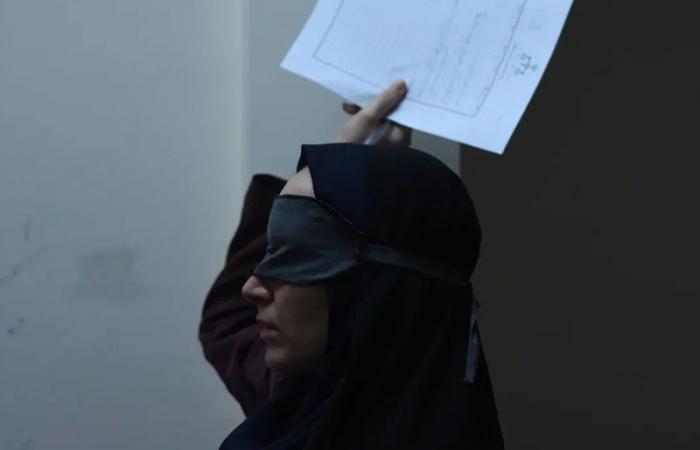Mohammad Rasoulof signs a new film that is frontally political, necessary as they say, made illegally and under threat, carrying with it the voices and cries of women and men who fight for their freedom, but which is ruined, in the end, by too much significant will.
It was in prison in Iran that the story of the Seeds of the wild fig tree has found its origin. Arrested for the third time in the summer of 2022 (he has since been in exile), shortly before the death of Mahsa Amini, Mohammad Rasoulof followed the “Women, Life, Freedom” movement behind bars and its murderous repression by ruthless mullahs. A prison staff member reportedly took him aside to confess that he wanted to hang himself in front of the prison entrance because he suffered intense remorse over the arrests, torture and chain executions, and could not free himself from the hatred he felt for his work.
EIs this the man who inspired Iman, the newly appointed investigator and judge in the film who, overwhelmed by the events of the revolt of an angry people and the inhumanity of a repressive system in which he is a cog, must face the revolt of his two daughters and no longer knows how to manage his professional and personal situation? But make no mistake: Iman is not the real hero of the Seeds of the wild fig tree (title that seems to have been stolen from Nuri Bilge Ceylan). These are his daughters, Rezvan and Sana. And this is his wife, Najmeh. In an inevitable domestic disorder (the first two hours of the film take place almost exclusively in the family apartment, in Tehran), Rasoulof patiently observes the inside (the family apartment) contaminated by the outside.
This outside is these terrible videos, published on social networks around the world (and watched on repeat by Rezvan and Sana) which have allowed to show the extent and the cruelty of the reprisals of the Iranian theocratic regime for months and months. Or how the insurrection of the streets, how these wounded and these dead, how these women who dance and burn their veil at the risk of their lives, invite themselves into the home (a friend of Rezvan, whose face was mutilated by a shot of pellets, will even be treated by Najmeh) until the implosion. For two hours, Rasoulof excels in recording the slow dereliction of moral convictions (and the awareness that goes with it) of each member of the family, and even more so when Iman’s service weapon disappears. A disappearance that will precipitate the family into a loop of violence and paranoia (who stole the weapon? With what intention? Did Iman misplace it?).
This is where the last part of the film begins. Rasoulof then moves out of Tehran. The last part is unfortunately too long, and above all too demonstrative, which contrasts with the narrative dryness (see for example the interrogation scene, soberly distressing) of the two previous hours. Certainly, Rasoulof operates a rather surprising change of genre (we move from social and psychological study to a sort of thriller schizo), but he exhausts himself in supporting the metaphor between the civil dissidence of a people and that of three women facing a father who has become a symbol, more than a juggernaut, of a state patriarchy ready for anything. Which orders, which imprisons, which condemns.
And up to this last image, a rather crude allegory of a defeated regime, which closes a frontal political film, necessary as they say, made illegally and under threat, carrying with it the voices and cries of women and men who fight for their freedom, but which is ruined, in the end, by too much significant will.
![]()
Michael Pige







